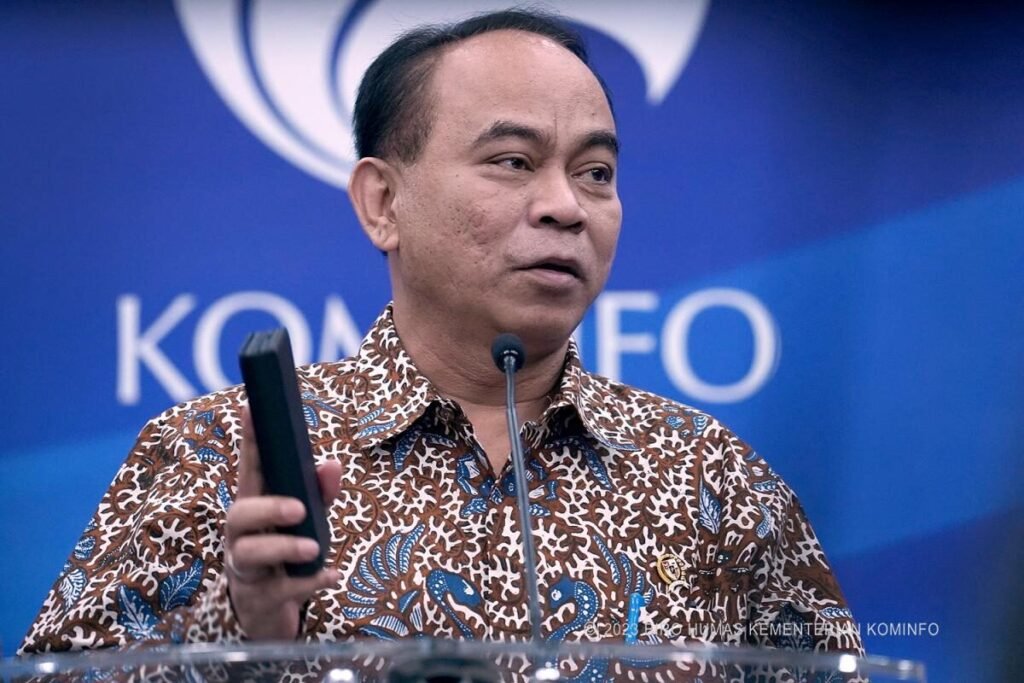Is Forex Trading Legal in Indonesia? Understanding the 2025 Landscape of Forex Regulation
Forex regulation Indonesia: Forex trading is legal in Indonesia in 2025, but it’s tightly regulated under specific government authorities. The two main regulatory bodies involved are Bappebti (Commodity Futures Trading Regulatory Agency) and OJK (Financial Services Authority). They are tasked with monitoring, licensing, and enforcing financial standards within the trading industry.
Forex trading in Indonesia is permitted only through registered futures brokers that comply with Bappebti’s regulatory framework. This legal protection is put in place to prevent fraud, manage financial risks, and ensure local traders are not exposed to predatory platforms. So while the door to forex remains open, it’s not without restrictions — and operating outside these rules could carry consequences.
The question of forex regulation Indonesia is not just about legality, but also about protecting both retail and institutional investors through clear boundaries. In a digital-first trading world, the government aims to allow access while ensuring traders don’t become vulnerable to global market volatility or scams.
1. What Are the Key Forex Regulations in Indonesia?

Source: WikiFX
The regulatory framework for forex trading in Indonesia focuses on three key areas: licensing, transparency, and investor protection. In 2025, this structure has been strengthened further as the number of online trading platforms has surged.
Firstly, only brokers with a Bappebti license are allowed to offer forex trading services to Indonesian residents. These brokers are required to meet specific capital requirements, provide clear contract disclosures, and operate through domestic institutions with a physical presence in the country.
Secondly, brokers must adhere to strict advertising rules. Misleading marketing, especially promises of guaranteed profits or “risk-free” trading, is strictly banned. Platforms and influencers violating these rules have faced sanctions or takedowns.
Finally, leverage is capped and margin trading is carefully monitored to prevent users from incurring catastrophic losses. These rules help the government balance accessibility with safety — encouraging participation, but under control. In short, forex regulation Indonesia today is about minimizing systemic risks in a high-volatility space.
2. Are International Forex Brokers Allowed to Operate?
One of the most common questions in Indonesian trading communities is whether foreign brokers are allowed. The answer is more nuanced than a simple yes or no.
International forex brokers are not legally permitted to solicit Indonesian clients unless they are licensed by Bappebti. This means that any platform — no matter how popular or widely used globally — must either register with the Indonesian authorities or stay out of the local market.
In reality, many Indonesians still trade via foreign platforms, especially those that advertise through social media. However, these platforms are not legally recognized, and users who choose to trade with them do so at their own risk. If the broker disappears, refuses withdrawals, or behaves fraudulently, Indonesian traders have little to no legal recourse.
As of 2025, Bappebti has blacklisted hundreds of such platforms, and ISPs have been instructed to block access to non-compliant broker websites. Traders are encouraged to verify a broker’s license before opening an account — and ideally, choose those with a physical office in Indonesia.
3. What Are the Requirements for a Legal Forex Broker in Indonesia?

Source: VeriFace
In order to operate legally, forex brokers must obtain a license from Bappebti, and that license comes with a long list of compliance requirements.
These include:
- Minimum capital requirements, often amounting to billions of rupiah to ensure financial stability
- Transparent risk disclosures and detailed client agreements
- Regular financial audits to prove solvency
- A physical presence in Indonesia and Indonesian-speaking customer support
- A compliance officer or team who ensures adherence to anti-money laundering (AML) and consumer protection laws
Additionally, brokers must report trading volumes and suspicious activities. This legal structure aims to eliminate fly-by-night operations and provide a secure environment for local investors.
This makes the process of becoming a legal forex broker in Indonesia not just costly, but also bureaucratically intensive — but it’s seen as necessary to build long-term investor confidence in the market.
4. Is Online Forex Trading Allowed for Retail Investors?

Source: Trading Economics
Yes, online forex trading is allowed for retail investors in Indonesia — but only when conducted through licensed platforms. The legality hinges entirely on whether the broker is registered under Indonesian law.
Retail investors can access trading platforms via desktop or mobile apps, but they must verify that these apps are tied to a licensed broker. In 2025, this point has become more important than ever, as the rise in user-friendly mobile apps has blurred the lines between legitimate platforms and high-risk alternatives.
There are also limits on leverage, with caps often placed around 1:100 or lower, depending on the asset class and the risk level of the trader’s account. Some local brokers offer educational programs and demo accounts to help new investors learn the ropes before committing real capital.
While online access makes forex trading more convenient, the forex regulation Indonesia enforces still places significant guardrails around who can trade, how they trade, and through whom they trade.
5. Can You Be Penalized for Illegal Forex Trading?
If you’re trading through an illegal or unlicensed broker, you’re not likely to be prosecuted as a retail trader — but you’re also not protected if something goes wrong.
In 2025, Indonesian authorities have shifted their focus toward those who promote or facilitate illegal forex activities, such as social media influencers, YouTubers, or affiliate marketers. These individuals can be fined or prosecuted under consumer protection laws or the country’s digital information and transactions law (UU ITE).
So while you won’t get fined just for opening an account on a foreign platform, you will bear the full consequences if you lose money, get locked out of your account, or become the victim of a scam. It’s a legal grey area — but one where the risk is borne entirely by the trader.
The safest path is always to trade through a legal forex broker that’s locally licensed and supervised.
6. How Does Bappebti Monitor Forex Activity in 2025?

Source: Porosbumi
By mid-2025, Bappebti has adopted more sophisticated digital surveillance tools to monitor forex activity in the country. Their oversight no longer depends solely on license applications or complaints — they now actively scan the internet, monitor social media, and review advertising claims.
They collaborate with OJK, Kominfo (Ministry of Communication and Information Technology), and local banks to ensure that illegal fund flows are detected and that unlicensed brokers are blocked at the ISP level.
In addition to enforcement, Bappebti has invested in public education campaigns to help Indonesians understand the difference between legal and illegal brokers. They publish a regularly updated list of licensed brokers and a blacklist of banned platforms.
This proactive role reflects how forex regulation Indonesia has moved beyond simple rule-making — it’s now a comprehensive enforcement and awareness strategy.
Conclusion: Forex Trading in Indonesia Is Legal — But Not Free-For-All
Forex trading remains legal in Indonesia in 2025, but it’s framed by an increasingly strict and structured regulatory system. The authorities — particularly Bappebti and OJK — have developed a well-defined path for participation that prioritizes investor protection over speculative freedom.
Anyone interested in joining the market should approach with caution, not fear. As long as you’re working with a licensed broker, fully informed of the rules, and prepared for the risks, you’re operating within the law.
The forex regulation Indonesia enforces today isn’t there to block opportunity — it’s there to ensure those opportunities are real, safe, and fair for everyone involved.




